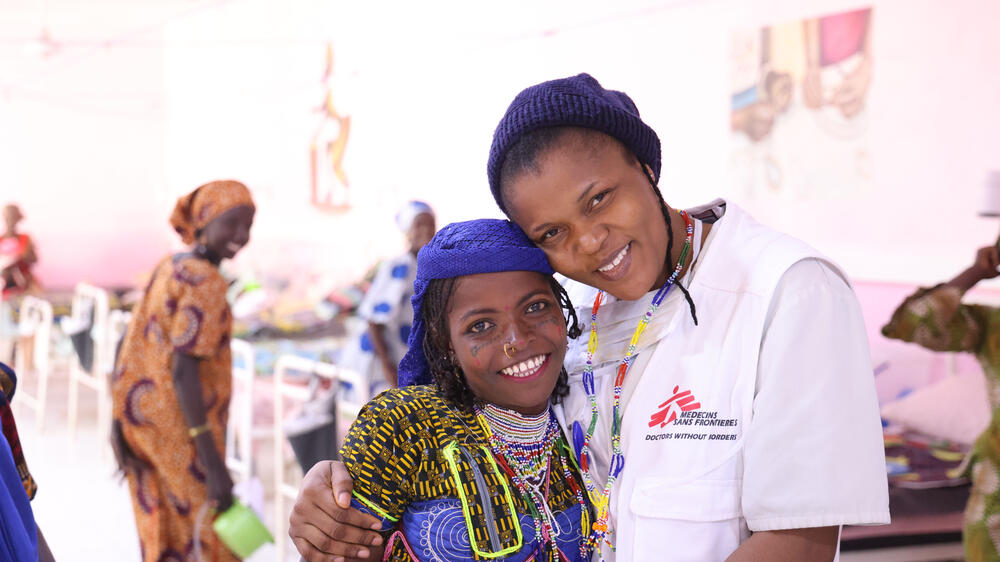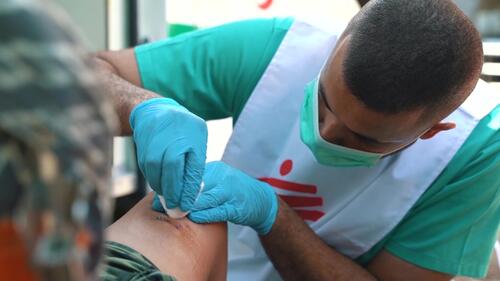The MSF movement
We are a worldwide movement owned and run by our staff, past and present. Collectively, they make sure that Médecins Sans Frontières (MSF) stays true to its mission and principles.
Our donors are a vital part of the movement - your generosity and support helps fund everything we do, with 90 percent of our income coming from individual donations. This allows us to stay independent, neutral and impartial - and to access those in greatest need quickly.
MSF Associations
Our staff 'own' and manage MSF through the MSF Associations. There are 24 Associations around the world. Most have an office that fundraises and recruits staff, like MSF Ireland.
Each association is attached to one of the five operational centres (OC). These are the offices which decide when, where and what medical care is needed.
The OCs can act independently but all layers of MSF interconnect and work together in various ways, and are formally bound as one movement by a shared name, a shared commitment to the MSF Charter and principles, and shared membership of MSF International.
Humanitarianism is not a tool to end war or create peace. It is a citizen's response to political failure.
MSF partner sections
MSF Ireland, like other MSF offices across the globe, work with these OCs to recruit staff and raise the money needed to provide care where it is needed most. They also provide specialist technical support and speak out about on behalf of the people we are helping.
OPERATIONAL CENTRES
Belgium | France | Holland | Spain | Switzerland |
PARTNER SECTIONS
Australia | Austria | Brazil | Canada | Denmark | Germany |
Greece | Hong Kong | Italy | Japan | Luxembourg | Norway |
South Africa | Sweden | UK | USA |
BRANCH OFFICES
Argentina | Beijing | Czechia | East Africa | Finland | India |
Ireland | Lebanon | Mexico | Moscow | New Zealand | Singapore |
South Korea | Taiwan | UAE | Uruguay | Poland |
MSF also has four other main offices:
- The International Office in Geneva
- UN Liason Office in Geneva
- UN Liason Office in New York City
Three specialised public-health centres - called Epicentre, Aedes and HealthNet - work with MSF to help expand expertise in specialist medical issues.
Other units, including supply centres and medical units, also support our activities on the frontline.
Other MSF projects
In the field, MSF doctors are constantly frustrated by the lack of adequate medical tools.
In response, we set up the MSF Access Campaign in 1999 to push for access to, and the development of, life-saving and life prolonging medicines, diagnostic tests and vaccines for patients in our programmes and beyond.
We set this project up with the prize money from the Nobel Peace Prize, which MSF was awarded in 1999.
MSF is well known for its humanitarian medical work, but it has also produced important research based on its field experience with vulnerable populations.
The UK office has a specialist research team, called the Manson Unit, which constantly analyses and refines our responses to specific diseases. We also run annual Scientific Day events to showcase our research.
This website archives MSF's scientific articles and makes them available free, with full text, and in an easily searchable format.
For 30 years, MSF has directly witnessed the human cost of the lack of drugs for neglected diseases and has raised its voice against this inequity.
In 2003, seven organisations from around the world joined forces to establish the Drugs for Neglected Diseases initiative (DNDi).


